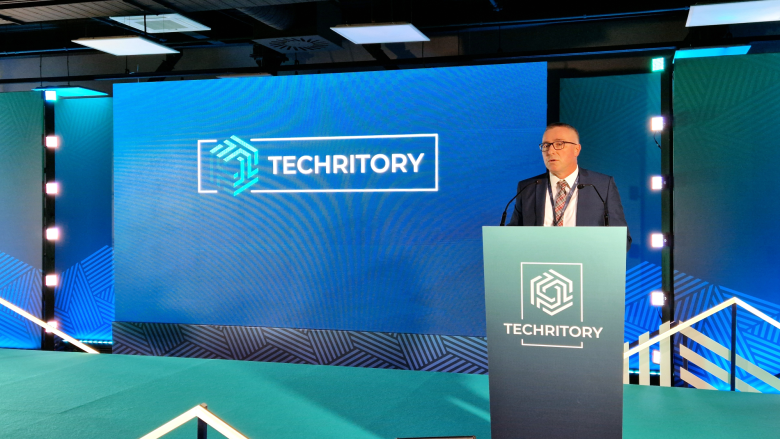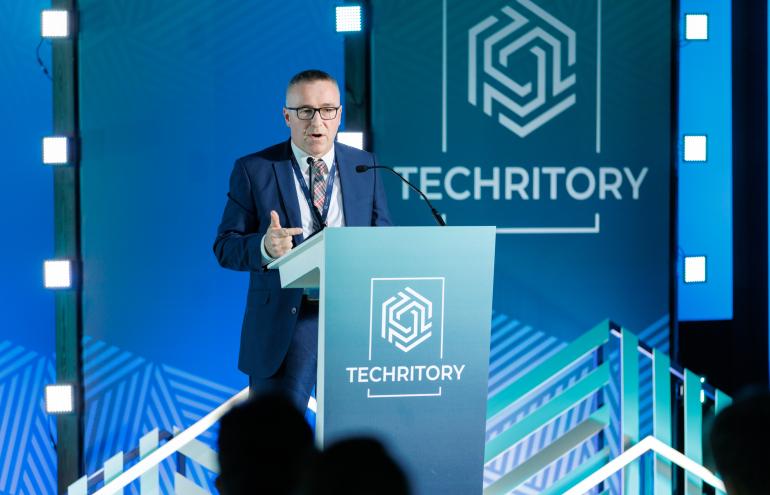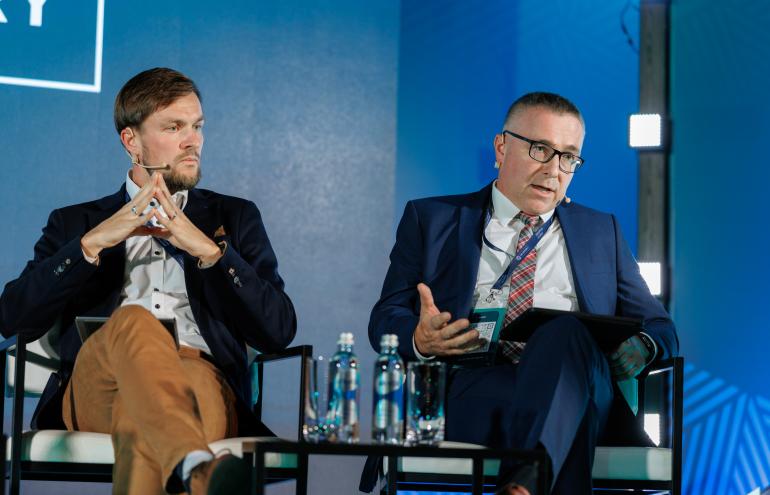22 October 2025
Incoming BEREC Chair Highlights Key Challenges and Future Priorities for the Telecoms Sector

At a recent Techritory conference that took place on 22-23 October 2025 in Riga, Latvia, the incoming BEREC Chair Marko Mismas (AKOS, Slovenia) outlined critical challenges and priorities for the European telecom sector, emphasising the importance of robust networks, market competition, and regulatory adaptation to technological advancements.
While acknowledging the additional costs that cybersecurity measures impose on network operators, the incoming BEREC Chair stressed the need for resilient networks that can withstand cyberattacks and withstand extreme weather, ensuring uninterrupted services.
In his keynote speech, Marko Mismas also touched on the evolving regulatory landscape. The current regulatory framework has successfully promoted competition, reduced prices, and supported fibre deployment. However, technological advancements require regulators to understand and, if necessary, address new market dynamics. The incoming BEREC Chair called for a balanced approach to simplification in future regulation, cautioning that simplification does not mean deregulation as deregulation could harm competition in markets and reduce benefits to consumers.
BEREC will continue to contribute to the EU’s Digital Decade 2030 goals by supporting fibre deployment, fostering competition, and addressing challenges in emerging areas like Internet of Things (IoT) and connected vehicles. Looking ahead, he emphasised the importance of adapting regulatory tools to ensure a resilient, competitive, and future-proof telecom sector. He reaffirmed BEREC’s commitment to shaping a robust and innovative telecoms landscape for Europe.
Protecting critical infrastructure
During a panel discussion, the incoming BEREC Chair emphasised the importance of strengthening network resilience across the EU to ensure the availability of reliable communication networks during emergencies. He stressed that building resilient networks starts with thoughtful planning: adding physical and satellite backups, and creating systems that can adapt quickly when disruptions occur. During his intervention, Marko Mismas highlighted experience from his home country, Slovenia, where natural disasters have disrupted mobile networks and prompted a proactive national strategy, provoking a discussion on the need for robust, sustainable, and well-coordinated infrastructure. Consequently, this has led to projects to expand coverage, use renewable energy, and ensure power and backhaul security, while emphasising the need to involve a broader range of stakeholders from different sectors in these projects.





